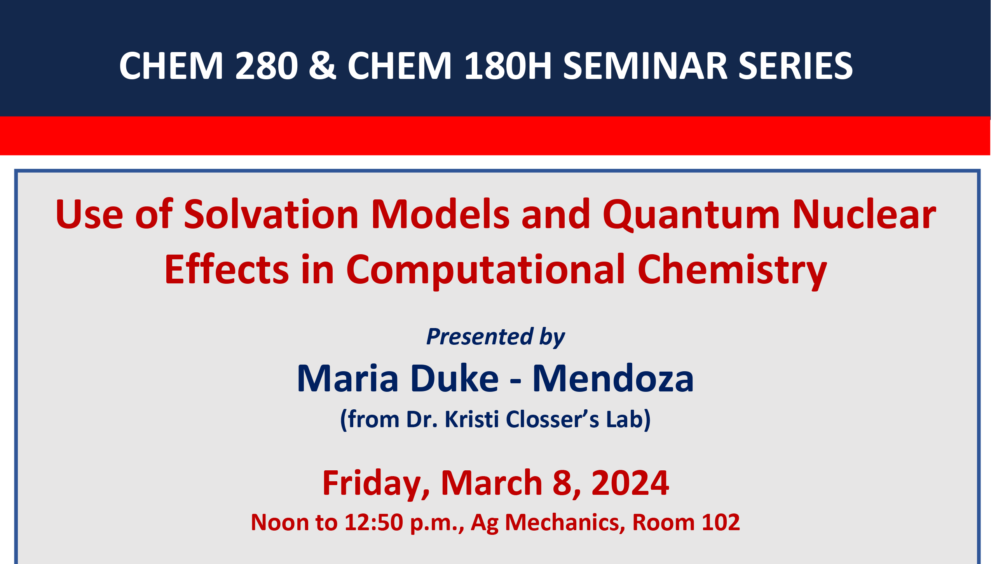Event Details
On Friday March 8, join Maria Duke-Mendoza for a seminar on the cutting-edge of computational chemistry, focusing on solvation models and quantum mechanics for precise chemical simulations.
Title: Use of Solvation Models and Quantum Nuclear Effects in Computational Chemistry
Presenter: Maria Duke-Mendoza, from Dr. Kristi Closser’s Lab
Date & Time: Friday, March 8, 2024, Noon to 12:50 p.m.
Location: Ag Mechanics Room 102, CHEM 280 & CHEM 180H Seminar Series.
Accurate simulations representing condensed phase chemical processes require the
consideration of the surrounding solvent environment. This talk will discuss the different
methods available for modeling solvation effects, focusing primarily on implicit solvation
models. Implicit solvation models are defined where the solvent environment can be
modeled by treating the solvent as a polarizable continuum. Alternatively, an explicit
solvent model represents a solvent by treating it as individual atoms, or hybrid implicit-
explicit models can also be used. Implicit solvation models are most often effective when
direct solute-solvent interactions are not critical. Additionally, when the solvent has
labile protons, quantum nuclear effects can become important. By using the nuclear-
electronic orbital (NEO) method which treats electrons and protons quantum
mechanically, one can account for quantum nuclear effects. In this talk, the application
of the NEO method with implicit and explicit solvent models will be addressed, including
the effects that NEO has on solvation free energy, solvent cavity size, and bond lengths.
This presentation will then finish with a discussion of the circumstances under which
different solvent models are appropriate and when nuclear quantum effects must be
considered.

